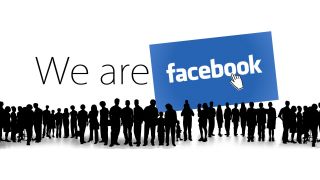Social Networking
Digital Social Networks Can Motivate People to Exercise More
Social networking can be a powerful motivator for adopting healthy behaviors.
Posted October 8, 2015

A new study from the University of Pennsylvania Annenberg School for Communication reports that social networks can be used to motivate people to exercise more. This is great news!
So many of us spend copious amounts of time on our digital devices and online. Oftentimes, we are interacting with friends, family, and loved ones via Facebook and other forms of social media—but ultimately many of us have become socially disconnected. As Sherry Turkle has observed, we are connected, but alone. The Facebook age has created a triple whammy of increased screen time, sedentarism, and social isolation.
A few days ago, I wrote a Psychology Today blog post, "Face-to-Face Social Contact Reduces Risk of Depression," based on new research which found that spending time with people in person trumps all forms of social media interaction. More than ever, it's crucial that each of us makes an extra effort to spend face-to-face time with one another.
Luckily, the groundbreaking new study from Penn has identified a way to utilize social networking to kill two birds with one stone by increasing both healthy behaviors and face-to-face contact with others while working out. This is the ultimate win-win
Social Networking Can Increase Your Motivation to Exercise More
In the new study from University of Pennsylvania, professor Damon Centola, PhD, of the Annenberg School for Communication and the School of Engineering and Applied Sciences, and his colleagues, created a way to use the internet and social networks to improve people's exercise habits. Needless to say, this was music to my ears. Below is a YouTube clip of Centola describing the study.
The October 2015 study, "Efficacy and Causal Mechanism of an Online Social Media Intervention to Increase Physical Activity: Results of a Randomized Controlled Trial," was published in the journal Preventive Medicine Reports.
This study utilized a model previously developed through Centola's research about optimizing online group dynamics. For this study, the researchers created a website where 217 graduate students enrolled in free exercise classes at the University of Pennsylvania gym.
The total group was divided into three subgroups. One group only received promotional messages from the University, another group received messages including highly engaging motivational videos and infographics emphasizing fitness tips and the importance of exercise. The final group received no messaging but was connected to a group of "buddies" within a social network.
By the end of the 13-week study, the findings were clearly evident. Promotional messages caused an initial bump in class attendance, but the motivational effects wore off quickly. In the long run, the promotional messages had almost no effect on increasing long-term class participation or physical activity.

On the flip side, assigning "buddies" through a social network proved to be a highly effective way to motivate people to exercise. The researchers were able to use the positive cues from peers to create a social network that motivated everyone who was a link in the chain to exercise more. As the study progressed, the motivational benefits of the "buddy system" led to new enrollment and created a broader social network of like-minded exercise enthusiasts.
Interestingly, the participants in this study actually knew very little about one another. However, the results indicate that even minimal exposure to social cues can have strong motivational impact. Simply knowing that one of your peers is working out was proven to be an effective motivator to get someone off the couch, into his or her workout clothes, out the door, and breaking a sweat.
I've experienced this firsthand. I have a friend who is currently participating in a daily boot camp at sunrise. Whenever I see his posts on Facebook, either during or after his workout, it motivates me to kickstart my daily workout sooner than later.
Conclusion: Using Social Media to Improve Psychological and Physical Well-Being
The advent of so many technological advances in the past two decades have forever changed the way we work, love, play, and communicate. Unfortunately, this may be causing our bodies and minds to short circuit. Currently more than 43 percent of Americans don't get enough daily exercise. Almost one third of us are obese. The idea of using social networking to motivate people to exercise more is a timely and much needed intervention.
Centola and his team are currently testing whether people are more motivated by healthy competition or by friendly social support. The answer to this question will help identify the sweet spot between camaraderie and rivalry when using social networking to motivate individuals to exercise more, lose weight, quit smoking, and lead healthier lives. Stay tuned!
© 2015 Christopher Bergland. All rights reserved.
Follow me on Twitter @ckbergland for updates on The Athlete’s Way blog posts.
The Athlete’s Way ® is a registered trademark of Christopher Bergland.




